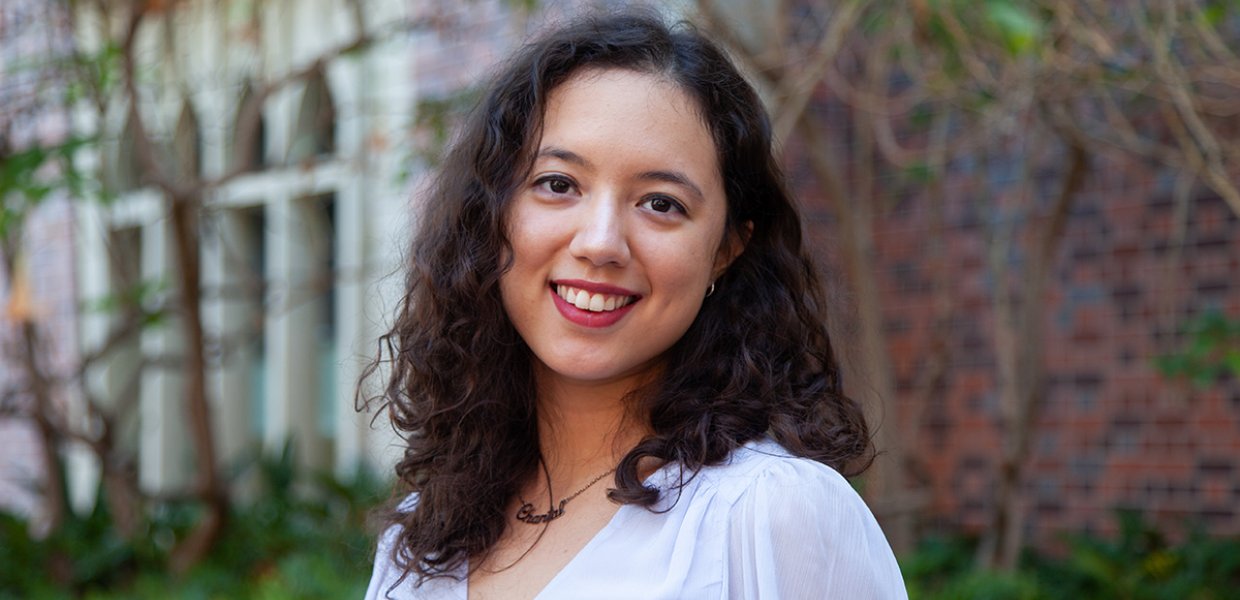Long before she started college, Marie Chantal Marauta had already developed a global perspective. Born in her father’s native Italy, she moved often as her father’s work took them across the world. Marauta attended primary school in the United Arab Emirates and spent the majority of her high school in the Philippines, her mother’s home country.
During high school, Marauta had the opportunity to serve as an anchor on the government's news channel. It was her first experience with journalism. Unfortunately, it also marked her first experience with gender discrimination in media.
“I was consistently criticized for what I wore, for how much I weighed,” she said. “I got none of the hard-hitting journalism assignments, and none of my pitches were ever heard.”
Marauta has gone on to build an academic career that critiques and interrogates the treatment of women in media — while also continuing to travel internationally.
During her undergraduate years as a history major at Brown University, Marauta spent her junior year studying abroad at Oxford University. As she was looking at master’s degree programs before graduation, the dual degree in Global Communications from USC Annenberg and the London School of Economics piqued her interest. It offered her the chance to study gender and media in depth, and also get the international experience she craved.
“LSE gives you the opportunity to be more theoretical and really have a more academia-based year of study, whereas USC helps you put that into more practical application,” she said.
Marauta spoke with USC Annenberg about how her lifetime of international experiences has informed her perspective as a scholar and a feminist.
Studying history seems very different from studying media. How does your undergraduate degree influence your current work?
My BA in history really helped enhance my storytelling skills, and I learned how to make seemingly boring and obscure subjects really exciting for an unsuspecting audience. That’s kind of what led me to want to do a master’s in media and communications — so I could turn topics into something that could resonate with more people than just an academic audience.
At what point did you decide that you wanted to study gender and media in graduate school?
I got the opportunity to craft an independent study at Oxford and I decided to focus on media representations of women in 20th century Britain. I wanted to see how and if the media helped create gender norms. There were so many random interesting things I researched — even the Spice Girls — that I realized how applicable it still is today. I knew I wanted to continue to work on applying history to contemporary representations and figure out what we can learn from them to create something great going forward.
Once you complete graduate school, you’ll have studied at four different universities. What have you learned from this opportunity?
It’s really forced me to go beyond my comfort zones and be a lot more outspoken, but in a way that is still respectful and communicative. Studying in Western countries has helped me find my voice and build upon my multicultural upbringing.
What have you found to be the most difficult?
Being able to get on my feet in every new city, and build a life for myself, academically, professionally and socially, has been a challenge. Over the four years, I was in four different institutions. When you’re trying to write research papers or conduct surveys and interviews, it is very intimidating when you don’t even have roots in the place where you’re studying. But it’s valuable to break that ice and come out of your shell and learn how to deal with these culture shocks and transitions earlier than later.
You’ve mentioned how cultural customs vary between the countries you’ve lived in. Do cultural differences also affect your academic work?
I know that when I say I’m a feminist in other countries, whether it’s in the Philippines or in Italy, it’s always met with “Oh, can you not find a boyfriend?” or “Why are you so angry all the time?” It’s not discussed like it is in America. I hope to one day to be able to create spaces where women are allowed to be angry or express frustration, be validated in that expression, and teach others what feminism is all about.
What do you hope to focus on in the future?
I’ve had the opportunity to build up the social media presence of The Meteor, a feminist media organization I work at, to bring to light historical facts, celebrations and less well-known feminist history. Making these concepts a lot more approachable and digestible for an audience is something that I’ve always been interested in, and I hope to be able to continue doing this work. It’s about asking how we can create an environment of activism that is intersectional, building female empowerment that doesn't hinge on “girlboss” rhetoric, but rather addresses the systemic issues that confront women.
